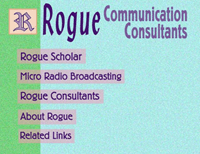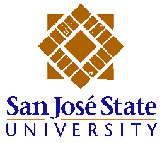
In "Field of Dreams," based on W.P. Kinsella's novel, Shoeless Joe, Ray Kinsella (Kevin Costner) hears a voice in his cornfield, "If you build it, he will come." So he bulldozes a section of the cornfield and builds a splendid baseball field and "they" come out of the corn rows: Shoeless Joe Jackson and the 1919 Chicago Black Sox team. Now the American Communication Association, with Editor Tyrone L. Adams and Associate Editor Jim A. Kuypers as the field crew, has built the American Communication Journal, one of the few online journals in our field. The question is, Will anyone come? I think they will, if we invite them.

In some respects, people have already arrived on the ACJ playing field. With 70+ editorial board members, its first issue online, and the second one in the works, ACJ is attracting interest and submissions. However, while there are many people on ACJ's virtual front porch, it is a fairly homogeneous group. Yes, we have both geographic and disciplinary interest representation on the board. Further, ACA includes "researchers, teachers, businesspersons, and general practitioners located throughout the Caribbean, and North, Central, and South America." Yet, by and large, we are a bunch of academic-types who have been schooled in traditional approaches to research and publishing. We represent a very small group.
As ACJ expands, the journal will be published in English, French, Porteguese, and Spanish. Publishing in multiple languages provides one invitation to join ACJ's virtual front porch. ACA's homepage is already available in these four languages. In this respect, ACA and ACJ are setting the standard for other communication organizations which seek to include more people in the disciplinary conversation. Still, in order to realize the potential of an online journal which serves as a virtual front porch for discussions of communication issues, ACJ must make commitments to activism and accessibility.
Activism
Shoeless Joe: Is this heaven?
Ray Kinsella: No, it's Iowa.

When I talk with non-academics (and many of my colleagues) about my work in cognition and communication, their eyes usually glaze over in a matter of moments. I think I'm in Academy heaven; my listeners know that we're in Iowa. In contrast, when I talk about my work in disabilities and communication, international students on an American campus, or hospice team members' supportive communication, friends, family, and even colleagues are attentive and interested.
Research in areas such as communication and cognition is important for enhancing our understanding of communication processes. Unfortunately, that understanding remains within a tiny community unless we take steps to apply that knowledge. Thus, we must make a commitment to answer the question, "So what?", not for ourselves, but for those whom we study. Answering that question requires that we focus our research attentions on important social issues and include multiple voices in the discussion. Activist research makes a difference in individuals' everyday lives and their political and social worlds. ACJ must make a commitment to promote such research.
The Public Dialogue Consortium (PDC) applies social constructionist theory to practical problems in public discourse. The consortium includes faculty members from a number of universities across the U.S., including one of my colleagues at San Jose State, Shawn Spano. The PDC received a Packard Foundation grant to pursue a project in Cupertino, CA which began in 1996. Entering Phase IV, the project has facilitated the city's identification of issues important to residents, ways to publicly discuss those issues, and strategies for improving future dialogue among the diverse groups in the city.

There are numerous examples of activist research, of which I mention only a few here. Mara Adelman (Seattle U.) and Lawrence Frey's (Loyola U., Chicago) research on Bonaventure House, a residential house for persons living with AIDS, has produced critical insight into how communicators preserve the delicate balance between individuality and community ("The Pilgrim Must Embark," a video produced with Peter Schultz, and The Fragile Community, recently published by Lawrence Erlbaum). Tom Peters and his cohorts maintain a detailed and informative website on the separation of church and state, grounded in their research on free speech, the U.S. Constitution, and legal argumentation. Mike Adams, one of my Theatre Arts colleagues at San Jose State U., turned his research on the origins of radio broadcasting into a video for our local Public Television Station, KTEH. At Trinity University, John McGrath's research on product warning labels provides a critical communication perspective which has improved the effectiveness of such labels on some products. In addition, his work in communicating prescription drug information focuses on an area of health communication often neglected, yet one which greatly impacts individuals' daily lives.
My own research on San Jose State's students with disabilities also demonstrates the impact our work can have. In early 1994, Shawn Spano, Lance Dawson (one of our majors), and I first conducted focus group interviews with students with disabilities to identify communication issues important to them. Based on those interviews and feedback from the Disability Resource Center staff, we designed and mailed a survey to all SJSU students who were registered with the university's DRC (formerly the Department of Disabled Student Services). After analyzing the data, we wrote a four-page memo which was sent to all DRC students. In addition, the memo was distributed to about 200 campus administrators. Highlights of the results were included in DRC's 1993-1994 annual report. Most important, the results from open-ended questions were used to successfully argue for greater space and resource allocation for the DRC.
Constructivists assert that messages serve a variety of functions and often address multiple goals in our interactions. In much the same way, our research must be multi-functional. In advocating activist research which serves those whom we study, I am not neglecting the importance of rigorous scholarship, solidly grounded theoretically and methodologically. However, we often mistake lots of numbers, cryptic statistical analyses, and convoluted language for thoughtful, meaningful research. If we are truly committed to inclusiveness in our front porch conversation, then we must promote research which makes a difference and is accessible to those outside the academic community.
Accessibility in Writing Style
Ray: I have just created something totally illogical.

My sister, being the supportive sibling that she is, has attended two communication conventions (Speech Communication Association, now the National Communication Association, and International Communication Association) and read some of my research. Kim has a bachelor's of science degree in nursing from California State University, Long Beach and is interested in my work in health communication. However, all the sibling support and nursing education could not get her through my article on social cognition and hospice team member communication in the Western Journal of Communication. She read a few pages and then turned to A. Cheree Carlson's Burkeian analysis of early feminist Lucretia Coffin Mott's writings, finding it much more appealing. Even my father, with a Ph.D. in psychology from the U. of Wisconsin-Madison and a curriculum vitae that requires a forklift, got bogged down in my book chapter on personal constructs ("I really don't know what you're talking about, but I'm sure it's very good," he assured me). We write for a specialized audience in our scholarly journals and books. We also need to take that information and present it in a way that non-academic-types and scholars outside our field can understand. I agree with David Whillock when he argues in his editorial in this issue that we need to rethink what we do as scholars, be less concerned with whom we are citing, and more concerned with the communities in which we live.
For most people, the stuff we academicians write is incomprehensible, illogical, and just plain boring. Further, we are often incomprehensible, illogical, and just plain boring to ourselves. For ACJ to provide a virtual front porch for open and free discussion of human communication issues, we must encourage clear and concise writing, limiting academese in language and structural choices. I think I lost my sister around the second page of my WJC article:
"The purpose of the present study is to examine individual differences in social cognition and team communication in a specific health care setting, hospice. More specifically, this study explores the links between team members' social cognitive processes and (1) team member evaluations of team communication effectiveness and (2) individual team members' satisfaction with the team. To further assess the role of social cognition in perceptions of team effectiveness and team member satisfaction, the content of team members' interpersonal construct systems and definition of their role in the hospice care team were analyzed to identify salient elements associated with team interaction and team member satisfaction."
What I meant was something like: "I looked at how hospice team members describe others and their own roles at work. I wanted to know how those descriptions are related to evaluations of team communication and satisfaction."
My dad started leafing through my personal constructs chapter after about page three:
"Third, constructivists make the theoretical claim that human interaction is the process whereby people coordinate their actions by applying shared schemes for organizing and interpreting those actions (Delia et al., 1982). Two kinds of interpretive devices which individuals use to coordinate their actions are posited. The first is the more general interpretive schemes, such as Grice's (1975) conversational maxims. The second is a particular kind of interpretive scheme labeled organizing schemes (B. O'Keefe et al., 1980). Although some interpretive schemes may be specific to one individual, organizing schemes are socially shared. Organizing schemes serve to 'fit together' the actions of interactants; they are the coordinating devices for the production of coherent conversation. Examples of organizing schemes are general plans for speech events, such as a sermon or lecture; and adjacency pairs, such as question-answer. Participants are able to interpret behavior and structure their own actions through organizing schemes which supply the sequential connections in conversations (Delia et al., 1982)."
This paragraphs translates into something like: "People communicate by knowing and at least loosely following rules for conversation."

I won't belabor the point, as David Sutton has discussed this issue in an easily-accessible format in the goldfish dialogues. Michael Calvin McGee in his editorial in this issue also argues that our word choices and arguments must be understandable. In addition, I suggest a visit to the Rogue Scholar website. I'll admit it, I'm a rogue. However, the original idea was Ted M. Coopman's, not mine. "A Rogue Scholar is committed to making scholarly research and writing available and understandable to the general public, as well as to those scholars working in non-related fields. . . . The barrier to spreading the huge amount of information generated by scholars is not ignorance, but the technical languages and styles used. Rogue scholars contend that, as researchers, we should be doing all we can to pass along information to the public that can assist them in making informed decisions about important issues and to help them understand the manner in which this information is gathered and processed. The understanding of what constitutes scholarly research as opposed to conjecture or opinion (often in the guise of 'entertainment') is an important tool in safe-guarding our fundamental rights in a democracy." It's a lofty assertion, that we roguesters are out there as vanguards of democracy. However, the point is well-taken: As scholars, we have an obligation to report our research in clear, plain language that others can access to make informed decisions.
Net Accessibility
Ray: That is so cool.....

Surfing the Net is cool, it's fun, it's entertaining, and sometimes it's informative. But have you ever tried Netsurfing through a UNIX System linked to your computer by a telephone line and ADI box, like what we have at San Jose State University? It's all difficult-to-read text; no eye-catching visuals and ear-catching sounds. While some SJSU departments are hard-wired to the net, many are not (like mine). Most of the communication studies faculty have not seen our department's website, unless they've accessed it from home. San Jose State may be "Silicon Valley's Metropolitan University," but we are less technologically-advanced than many junior colleges in the area (although our president, Robert L. Caret, is valiantly trying to drag us into the 20th century before we reach the 21st). As Joseph E. Burns notes in his article in this journal issue, ever-more sophisticated programming innovations on the Web require ever-more sophisticated (and expensive) hardware and software. For those with limited budgets and older computer equipment, surfing the Net can be done in only a limited capacity or not at all. If ACJ wants to extend an invitation for others to hang out on this virtual front porch, then we need to make the site accessible to low-tech computer users as well as owners of top-of-the-line computer systems. Further, focusing on content first and technology second, as Robert L. Schrag suggests in his editorial in this issue, should serve to remind us of this commitment to accessibility.
To include as many participants as possible on our virtual front porch, we also must be sensitive to the needs of persons with disabilities. Martin Shulter, director of SJSU's Disability Resource Center, wrote in a letter to Dennis Jaehne, the chair of my department: "The issues of access and equality for people of disabilities will not be achieved by legislation and fiat alone. As with any civil rights movement, and disability is a new and emerging movement, the key element is perception and acceptance." For example, complex site visuals and sounds are fun and cool if visitors can see and hear them, but mean nothing if they can't. We must make the journal as visitor-friendly as possible and include options such as text-only and no-frames.
Burns also tells us that while nearly 40% of U.S. homes have personal computers, only 16% of those PC owners use the Internet. That is, there are a select few of us out there surfin' the cyberwaves. Those of us who do need to encourage those who don't to explore this new technology. One way to do this is to integrate new computer technology into the classroom. At Ohio University, Judith Yaross Lee and Andy Wood teach communication majors to build their own websites. Lee also sets up a listserve for her classes and encourages (well, requires) students to participate in electronic as well as classroom discussions. ACJ should support these efforts to introduce more people to the Internet and our virtual front porch.
The Invitation
Thomas Mann to Ray: The one constant through all the years, Ray, has been baseball. America has rolled by like an army of steamrollers. It's been erased like a blackboard, rebuilt, and erased again. But baseball has marked the time. This field, this game, is a part of our past, Ray. It reminds us of all that once was good, and that could be again. Oh people will come, Ray. People will most definitely come.
People will most definitely come to our virtual front porch; some already have. Our goal should be to welcome divergent voices from many places to enter the conversation. ACJ has the potential to mark a shift in how we report scholarship and who gets included in the dialogue. In these respects, the stoop metaphor incorporates both stupa and stump: ACJ's virtual front porch can provide a sacred space (stupa) for activist and accessible research (stump). If we gather enough voices on our virtual front porch, ACJ will remind us of what was once good scholarship and demonstrate that it can be good again.